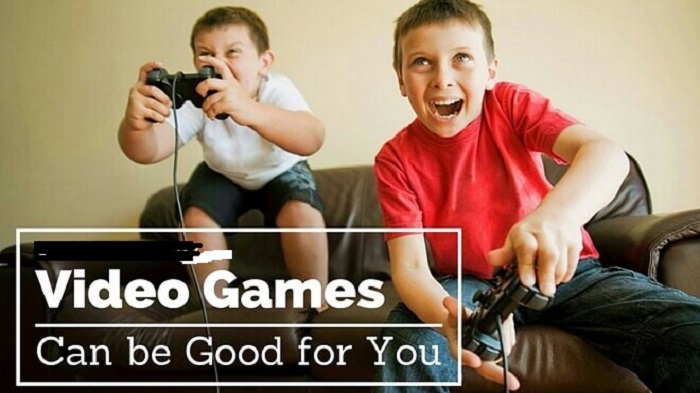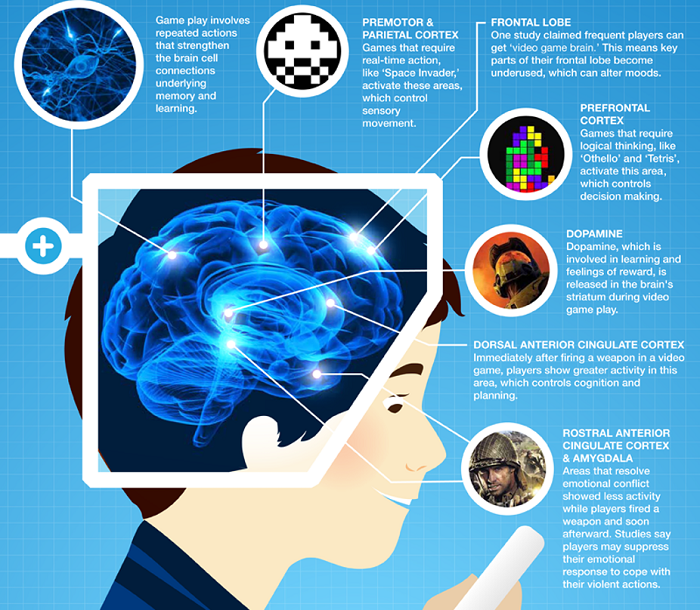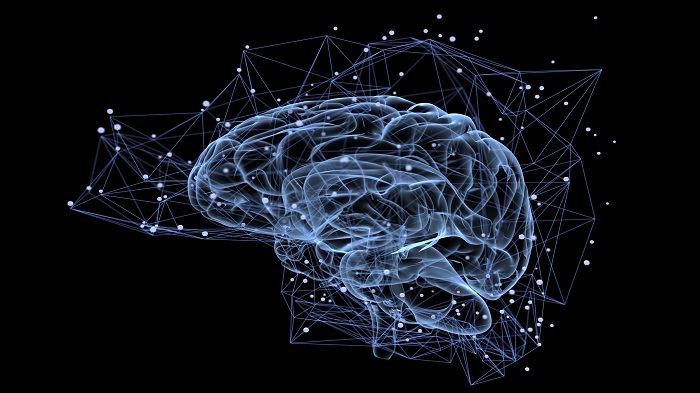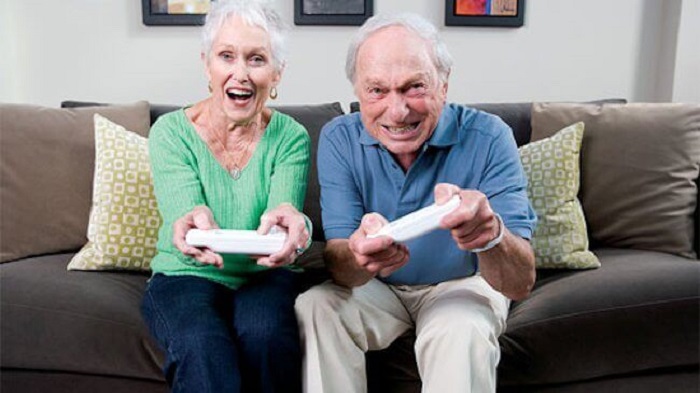Mental health is a topic of concern in today’s fast paced world and just like our physical well being, mental well being should be of priority as well. One of the many ways to overcome mental illness is by involving or exploring new practices, which might help in relaxing. Many researchers believe one of the popular practices can be gaming. The common approach to increasing intrinsic motivation with a digital system is to increase the inherent enjoyment of the activity through games.

Dr. Michelle Colder Carras, a public health researcher, led the study, which concluded that although the impact of video games may vary based on the user, clinicians may wish to discuss video game play with their patients to help them “optimise their use of games to support recovery.”
“Gameplay may promote a mindfulness-like psychological [escape] but can also provide users with benefits of confidence, social connection, personal growth, and opportunities for employment or even leadership.These benefits are accessible to people with disabilities for whom traditional treatments, leisure activities, or social interactions may be challenged by circumstances or limitations. Games could be implemented in large populations very inexpensively, thus acting as potentially very cost- effective recovery supports or mental health treatments ,” the researchers write.
There are times where gaming has been labeled as a disorder by WHO however during COVID 19 pandemic WHO asked people to engage in gaming as it helps to divert our mind from present to the virtual world.

Clinical psychologist and psychotherapist Narendra Kinger shared that for the mode of entertainment and for quick escape gaming is good .He adds “Anything and everything can have a positive and negative impact depending on one’s usage, adaptability, flexibility, evolution and ability to control impulses. Human beings experience impulses some of which need control and others modulation. This requires critical thinking skills and ability to evaluate pros and cons rather than function on autopilot or impulsively. Those who manage to integrate gaming into regular normal life and continue with their daily activities benefit from gaming as it provides one with an “escape from reality mechanism”.
We also know that video games are highly stimulating. This stimulation reaches nearly all parts of the human brain and leads to high level thinking as well as the development of fine motor skills. With the intensity and complexity of each game comes quick analysis, thinking, strategising, learning to deal with stress and inductive reasoning followed by hypothesis testing (Tumbokon, 2018). In other words, playing video games forces the gamer to deeply stimulate multiple different areas of his or her brain which leads to the development of a large handful of various beneficial tasks and dimensions of thinking. Further, it has been discovered that video games can help those who suffer from mental disorders such as anxiety, depression, antisocial personality disorder (APD), attention deficit hyperactivity disorder (ADHD), post-traumatic stress disorder (PTSD) and Alzheimer’s disease.

It was found that video games can be very therapeutically useful in such instances due to the fact that playing video games can develop positive structural brain changes. This is due to the fact that mental disorders arise when brain regions experience a decrease in size. When someone suffering from such a deficit immerses themselves in a video game, they experience a volumetric brain increase thus suppressing the patient’s disorder (Brooks 2013).
A recent study, carried out by mobile games developer Lockwood Publishing, has discovered that more than half of those aged 55 or older (56 per cent) say gaming has given them a much-needed distraction from current events. Even more surprisingly, this older age group hugely outshines the “traditional” gaming demographic of 18 to 24-year-olds: just one in three of these younger gamers (36 per cent) could say to the same. Many respondents believed that gaming can teach you skills for the future, including:
Problem-solving skills (63 per cent);
Hand-eye coordination (62 per cent);
Strategic planning (54 per cent); and
Patience and attention to detail (46 per cent each).

Every other person is going through:
As the COVID-19 lockdown slowly started lifting the most common emotion faced by all is fear. The spread of COVID-19 from all over the world, through television, social media, newspapers, family and friends, and other sources makes us anxious, panicky, and are possibly making us think, say, or do things that we might not consider appropriate under normal circumstances. That is where mental health starts deteriorating.
Other ways to handle emotional problems
If gaming is unable to resolve mental conditions during this tough time there are other ways too. Ministry of Health and Family Welfare Government of India recommends to-do list to handle emotional problems and they are as follows:
1.At times of anxiety, practice breathing slowly for a few minutes. Try and distance the thoughts that are making you anxious. Think of something calm and serene, and slow down your mind.
2.When feeling angry and irritated, calming your mind, counting back from 10 to 1, distracting yourself helps.
3.Even when feeling afraid, deal with it by asking yourself:
a.What is under my control?
b.Am I unnecessarily worrying about the worst thing that can happen?
c.When I have been stressed in the past, how have I managed?
d.What are the things I can do to help myself and be positive?
4.Feeling lonely or sad is also quite common. Stay connected with others. Communication can help you to connect with family and friends. Call up people whom you haven’t spoken to and surprise them. Discuss happy events, common interests, exchange cooking tips, share music.
5.If any of these emotions persist continuously for several days, despite your trying to get out of it, talk about it with someone. If the feelings worsen, a person may feel helpless, hopeless and feel that life is not worth living. If that happens, call at helpline number (080-46110007) for advice from a mental health professional or contact your doctor / mental health professional.

